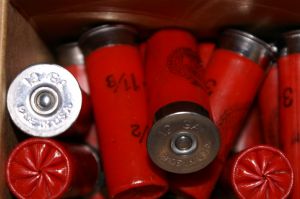In the ever-changing world of medicinal marijuana legislation, it is important to follow all court decisions closely. The People v. Reece J. Clark, a recent case from the Court of Appeal of the State of California Second Appellate District, involved a defendant who pleaded guilty to possession of cocaine and possession of a short-barreled shotgun.

The affidavit in support of the warrant, drafted by an LA County Sheriff’s Deputy, alleged that the affiant was extensively trained by the department and had a considerable amount of field experience in the sale of street level drugs.
As our marijuana defense lawyers in Orange County understand, a police officer who claims to be an expert in the sale and purchase of illegal narcotics on the street level basically means that he or she has arrested a lot of people. Generally, these so-called experts have never testified on behalf of any defendant, as is typical with other experts, and has never written any peer-reviewed publications or obtained any advanced degrees on the subject in which they are claiming to be an expert.
The affidavit also stated that the officer had received confidential information there was an illegal marijuana indoor grow operation within the Pasadena city limits. The confidential informant (CI) made the tip 15 days before the officer drafted that affidavit in support of the search warrant. During a surveillance operation, the officer observed two vehicles that were said to belong to defendant in front of his residence and the officers saw him go to one of the cars and drive away.
From the sidewalk in front of his home, officer claimed to be able to smell a large amount of unburnt marijuana. Officer also reported seeing a window-mounted air conditioner running in the garage on a cold winter night. According to the officer, this is indicative of an illegal indoor grow operation, because the grow light needs to be constantly cooled.
When the officers executed the warrant, they found 246 marijuana plants, bags of packaged marijuana, growing equipment, a 12-guage shotgun, and a semi-automatic handgun, along with ammunition. Other forms of paraphernalia were seized, as well.
On appeal, the court looked at whether the judge who issued the warrant had a substantial basis for concluding a fair probability of wrongdoing. While defendant conceded that there may have been probable cause that he was cultivating marijuana, there was no showing that the cultivation was illegal.
Defendant relied on the California case, People v. Mower, that he argued requires an affirmative factual showing in the affidavit that the cultivation was not in accord with the Compassionate Use Act. The court did not agree with the interpretation of Mower and found that it did not provide immunity for defendants in all cases and affirmed the defendant’s convictions.
The Los Angeles CANNABIS LAW Group represents growers, dispensaries, collectives, patients and those facing marijuana charges. Call us at 949-375-4734.
Additional Resources:
People v. Reece J. Clark, October 9, 2014, California Court of Appeal
More Blog Entries
Berkeley Ordinance Mandates “Welfare Weed,” September 26, 2014, Los Angeles Marijuana Lawyer Blog
